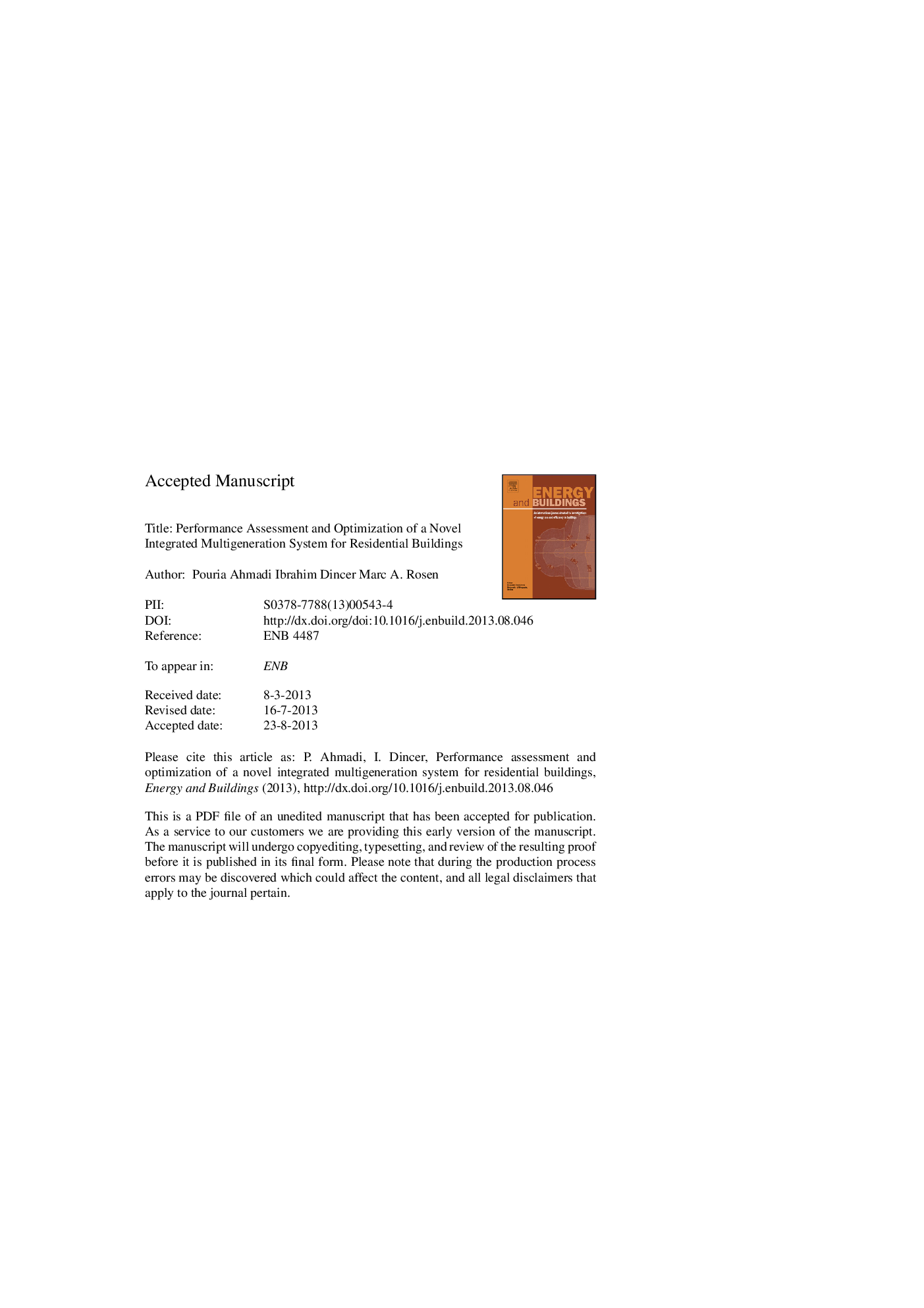| Article ID | Journal | Published Year | Pages | File Type |
|---|---|---|---|---|
| 6734632 | Energy and Buildings | 2013 | 39 Pages |
Abstract
A comprehensive thermodynamic study of a multigeneration system, based on a heat recovery unit, an organic Rankine cycle (ORC), an ejector refrigeration cycle, a domestic water heater and a proton exchange membrane (PEM) electrolyzer, for residential applications is undertaken to produce multiple commodities, in terms of power, heating, cooling and hydrogen. The present study covers both energy and exergy analyses and multi-objective optimization. To determine the irreversibilities in each component and assess the system performance, a parametric study is performed to investigate the effects of varying design parameters and operating conditions on the system energy and exergy efficiencies. A multi-objective optimization with an evolutionary algorithm is applied to determine the best design parameters for the present system. The two objective functions utilized in the optimization are the total cost rate of the system (known as the cost associated with component purchasing and environmental impact) and the system exergy efficiency. The total cost rate of the system is minimized while the cycle exergy efficiency is maximized by using an evolutionary algorithm. To provide a better understanding, the Pareto frontier is shown for multi-objective optimization. In addition, a closed form relationship between exergy efficiency and total cost rate is derived for practical applications.
Keywords
Related Topics
Physical Sciences and Engineering
Energy
Renewable Energy, Sustainability and the Environment
Authors
Pouria Ahmadi, Ibrahim Dincer, Marc A. Rosen,
